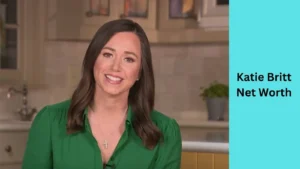When someone calls you cheap, it can sting, especially if you pride yourself on being financially responsible or simply don’t feel the need to overspend.
Being called “cheap” often implies that you’re unwilling to spend money, even at the expense of others’ expectations. However, there’s a huge difference between being frugal and being stingy.
The key to slaying such comments lies in a clever comeback that reflects your values and mindset.
This guide provides over 30 sharp, witty, and thoughtful replies that will help you respond confidently and perhaps even leave the critic rethinking their words.
Proudly Financially Savvy
Turn the insult into a compliment by embracing your financial wisdom.
Explanation:
By stating that you’re financially savvy, you’re showing that being called cheap is actually a testament to your ability to manage money wisely.
For Example:
I prefer to call it being financially savvy. It’s what keeps my savings account happy!
Smart Spending Over Mindless Splurging
Highlight the importance of smart spending versus impulsive buying.
Explanation:
This response underscores the idea that you prioritize thoughtful spending, which is far from being cheap.
For Example:
I’d rather spend wisely than splurge mindlessly. It’s called being smart.
Not Cheap, Just Resourceful
Reframe the label by emphasizing resourcefulness.
Explanation:
By describing yourself as resourceful, you highlight your ability to make the most out of what you have, a quality that’s far from being negative.
For Example:
I’m not cheap, I’m just resourceful. It’s how I get the best value for my money.
Spending Wisely for a Better Future
Point out that your spending habits are part of a long-term financial plan.
Explanation:
This comeback shifts the focus from the present to the future, showcasing your foresight and financial discipline.
For Example:
I’m investing in my future, not wasting money on temporary thrills.
Not Cheap, Just Minimalist
Align your spending habits with a minimalist lifestyle.
Explanation:
By identifying with minimalism, you turn the accusation into a statement of your values and lifestyle choices.
For Example:
I’m not cheap, I’m a minimalist. I value experiences over things.
Knowing the Value of a Dollar
Emphasize your understanding of money’s value.
Explanation:
This response shows that you appreciate the true worth of money, a perspective that many people might not consider.
For Example:
I know the value of a dollar, and I spend accordingly.
Quality Over Quantity
Highlight your preference for quality purchases.
Explanation:
This comeback points out that you prioritize quality over quantity, implying that your spending is thoughtful rather than stingy.
For Example:
I’d rather invest in quality than waste money on quantity.
Saving for What Matters
Show that your careful spending allows you to save for the things that really matter.
Explanation:
This response illustrates that your financial habits are geared toward securing what’s important to you.
For Example:
I’m saving for what really matters—my future.
Responsible Spending Is My Strength
Claim responsibility as a strength, not a flaw.
Explanation:
By framing responsible spending as a positive trait, you turn the insult on its head.
For Example:
Being responsible with my money is a strength, not a weakness.
Living Within My Means
Proudly state that you live within your means.
Explanation:
This comeback asserts that you’re realistic and grounded in your financial approach, rather than reckless.
For Example:
I live within my means, and I’m proud of it.
Not Cheap, Just Practical
Emphasize the practicality behind your spending choices.
Explanation:
This response shows that your spending habits are based on practicality and common sense, not stinginess.
For Example:
I’m not cheap, I’m practical. I don’t see the point in wasting money.
I Prefer Savings to Debt
Point out that you’d rather save money than go into debt.
Explanation:
This comeback underscores your commitment to financial stability and responsibility.
For Example:
I’d rather have savings than debt, wouldn’t you?
Maximizing Value, Not Spending Aimlessly
Highlight your focus on getting the best value for your money.
Explanation:
This response shows that your careful spending is about maximizing value, not about being cheap.
For Example:
I maximize value, not spend aimlessly.
Saving Money, Saving Stress
Point out that your habits save you stress, not just money.
Explanation:
This comeback connects your financial habits to overall well-being, showing that they have broader benefits.
For Example:
Saving money means saving stress. I prefer peace of mind.
Frugality Is Financial Freedom
Link your frugality to financial freedom.
Explanation:
This response demonstrates that your frugality is a conscious choice to maintain freedom and control over your finances.
For Example:
Frugality is my path to financial freedom.
Not Cheap, Just Focused on My Goals
Emphasize that your spending aligns with your goals.
Explanation:
This comeback shows that your spending is intentional and directed toward achieving your personal goals.
For Example:
I’m focused on my goals, not on unnecessary spending.
Living Well Within My Budget
Proudly state that you’re living well within your budget.
Explanation:
This response affirms that you’re in control of your finances, which is something to be admired, not criticized.
For Example:
I’m living well within my budget, and that’s something I’m proud of.
Spending Thoughtfully, Not Recklessly
Highlight your thoughtful approach to spending.
Explanation:
This comeback points out that you’re mindful about how you spend, which is a sign of wisdom, not cheapness.
For Example:
I spend thoughtfully, not recklessly.
Prioritizing What’s Important
Show that your financial decisions are based on your priorities.
Explanation:
This response demonstrates that your spending reflects your values and priorities, not a lack of generosity.
For Example:
I prioritize what’s important to me—that’s why I spend carefully.
Financial Security Is My Priority
Point out that financial security is more important than unnecessary spending.
Explanation:
This comeback emphasizes that your focus is on long-term security rather than short-term indulgences.
For Example:
Financial security is my priority, not spending on every whim.
Not Cheap, Just Financially Independent
Emphasize that your spending habits contribute to your independence.
Explanation:
This response shows that you value independence, which is supported by your careful financial management.
For Example:
I’m not cheap—I’m financially independent.
Spending Where It Counts
Show that you choose to spend on what truly matters.
Explanation:
This comeback highlights that your spending is deliberate and focused on what you value most.
For Example:
I spend where it counts, not just to impress others.
Proud of My Financial Discipline
Claim your financial discipline as a point of pride.
Explanation:
This response reframes the label cheap as a sign of your self-control and discipline.
Example:
I’m proud of my financial discipline—it’s what keeps me on track.
Mindful Money Management
Emphasize your mindfulness in managing money.
Explanation:
This comeback highlights that your spending is careful and considered, not careless.
For Example:
I practice mindful money management, not careless spending.
Investing in My Future
Show that your careful spending is an investment in your future.
Explanation:
This response links your frugality to a forward-thinking mindset focused on long-term success.
For Example:
I’m investing in my future, not just living for today.
Not Cheap, Just Financially Literate
Highlight your financial literacy as the reason for your spending habits.
Explanation:
This comeback shows that you understand finances well and make informed decisions based on that knowledge.
For Example:
I’m financially literate, not cheap—that’s why I make the decisions I do.
Proud to Be Debt-Free
Point out that your careful spending has kept you out of debt.
Explanation:
This response emphasizes that your financial habits have tangible benefits, such as avoiding debt.
For Example:
Being debt-free is worth more to me than unnecessary spending.
Focused on Wealth, Not Wasting Money
Highlight your focus on building wealth instead of spending aimlessly.
Explanation:
This comeback shows that your focus is on creating long-term wealth, not just short-term satisfaction.
For Example:
I’m focused on building wealth, not wasting money on things I don’t need.
Not Cheap, Just Eco-Conscious
Link your spending habits to environmental consciousness.
Explanation:
This response reframes frugality as part of a broader commitment to sustainability and environmental responsibility.
For Example:
I’m not cheap—I’m eco-conscious. I avoid waste whenever I can.
Living Simply and Satisfied
Emphasize that you find satisfaction in simple living.
Explanation:
This comeback shows that you’re content with a simple, uncluttered life that doesn’t require excessive spending.
For Example:
I live simply and I’m satisfied. Excess isn’t necessary for happiness.
Financial Success Requires Sacrifice
Point out that financial success often requires sacrifices, which you’re willing to make.
Explanation:
This response shows that you’re willing to make short-term sacrifices for long-term gains, a mindset that sets you apart.
For Example:
Financial success requires sacrifice, and I’m okay with that.
Spending Strategically, Not Randomly
Highlight your strategic approach to spending.
Explanation:
This comeback shows that you’re deliberate and strategic in how you manage your money, which is far from being cheap.
For Example:
I spend strategically, not randomly. There’s a method to my madness.
Not Cheap, Just Confident in My Choices
End with a strong statement of confidence in your financial choices.
Explanation:
This final comeback shows that you stand by your decisions and aren’t swayed by others’ opinions.
For Example:
I’m confident in my financial choices, and that’s all that matters.

James Wilson is the creative mind behind ReplySwift.com. With a talent for crafting quick and clever responses, James helps others communicate more effectively. On ReplySwift.com, he shares tips, templates, and insights to make every reply impactful and engaging. Join James and elevate your response game to new heights.












